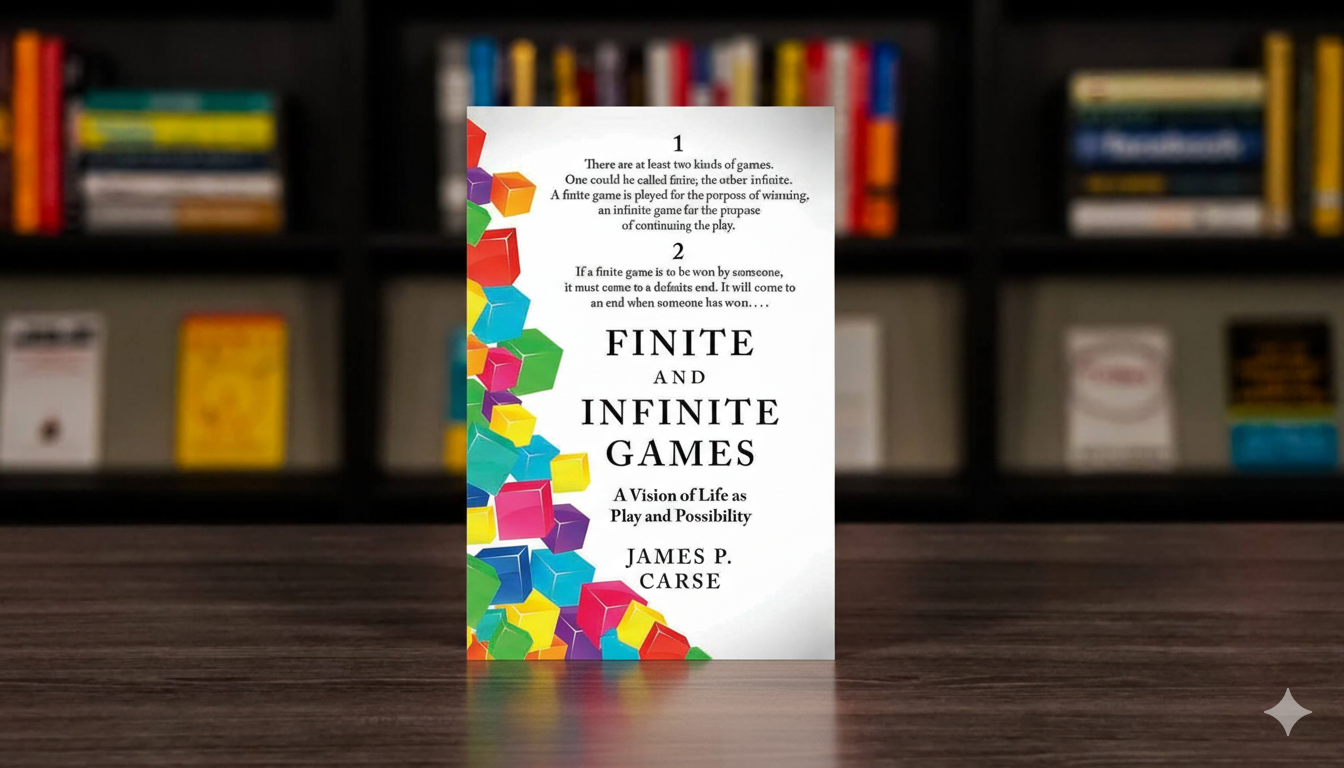Are You Playing to Win, or Playing to Keep Playing?
Imagine a game. What comes to mind? A beginning, an end, rules, players, and a clear winner, right? This is how most of us view life and success – as a series of finite games to be won. But what if there's another way to play?
James P. Carse's slender, philosophical masterpiece, Finite and Infinite Games, challenges our conventional understanding of life, competition, and purpose. This isn't a self-help book in the traditional sense; it's a profound lens through which to examine our own lives and the institutions we inhabit.
The Two Games: Finite vs. Infinite
Carse posits that there are only two kinds of games:
A Finite Game: This is a game played for the purpose of winning. It has a known beginning and end, fixed rules, and a clear objective (to win). Think sports, business deals, elections, or even a typical career climb. Players compete within the boundaries.
- Goal: To win, to have a victor and a loser.
- Rules: Exist to enable the game to end.
- Time: Limited, a defined duration.
- Identity: Players have a defined role, a mask worn for the game.
- Surprise: Avoided, as surprise interferes with winning.
- Power: Measured by the ability to bring the game to an end (i.e., win).
An Infinite Game: This is a game played for the purpose of continuing the play itself. It has no fixed beginning or end, and its rules are not fixed; they change as the game continues. The goal is not to win, but to keep the game going, to bring more players in, and to evolve. Think of true learning, relationships, raising a family, or leading a truly innovative company.
- Goal: To keep the play going, to have more play.
- Rules: Exist to enable the game to continue, to evolve.
- Time: Unlimited, perpetually open.
- Identity: Players are authentic, revealing themselves through play.
- Surprise: Embraced and celebrated, as it allows for transformation.
- Power: Measured by the ability to keep the game open, to invite more play.
The Ultimate Transgression: Playing an Infinite Game as if it Were Finite
Carse argues that many of our deepest frustrations and societal problems arise when we try to play an infinite game with a finite mindset.
- Business: A company focused only on quarterly earnings (finite win) might sacrifice long-term innovation or employee well-being (infinite play) to "win" a quarter.
- Politics: When political parties play to "defeat" the opposition rather than collectively govern (an infinite game), society suffers.
- Relationships: If you approach a friendship or marriage with a checklist of "wins" or a desire to "be right," you undermine the infinite nature of mutual growth and connection.
- Education: Treating education as a series of tests to pass (finite) rather than a lifelong journey of learning and inquiry (infinite) misses its true purpose.
"Finite players play within boundaries; infinite players play with boundaries," Carse writes. The infinite player doesn't seek to conquer but to expand, to include, to evolve the very nature of the game.
A Call to Reframe Your Life
Finite and Infinite Games isn't prescriptive; it's descriptive. It asks you to critically examine:
- What games are you currently playing? Are they truly finite, or are you imposing finite rules on something that should be infinite?
- What are your ultimate aims? Are you striving for a final victory, or for sustained engagement and growth?
- How do you relate to others? Are they competitors to be vanquished, or fellow players with whom to continue the game?
By understanding this distinction, we can shift our focus from winning to enduring, from competition to collaboration, and from fixed outcomes to continuous creation. It encourages us to be curious, open to change, and committed to a game that never truly ends – the game of living itself. This profound book might just convince you to stop trying to win life and start simply playing it, infinitely.
